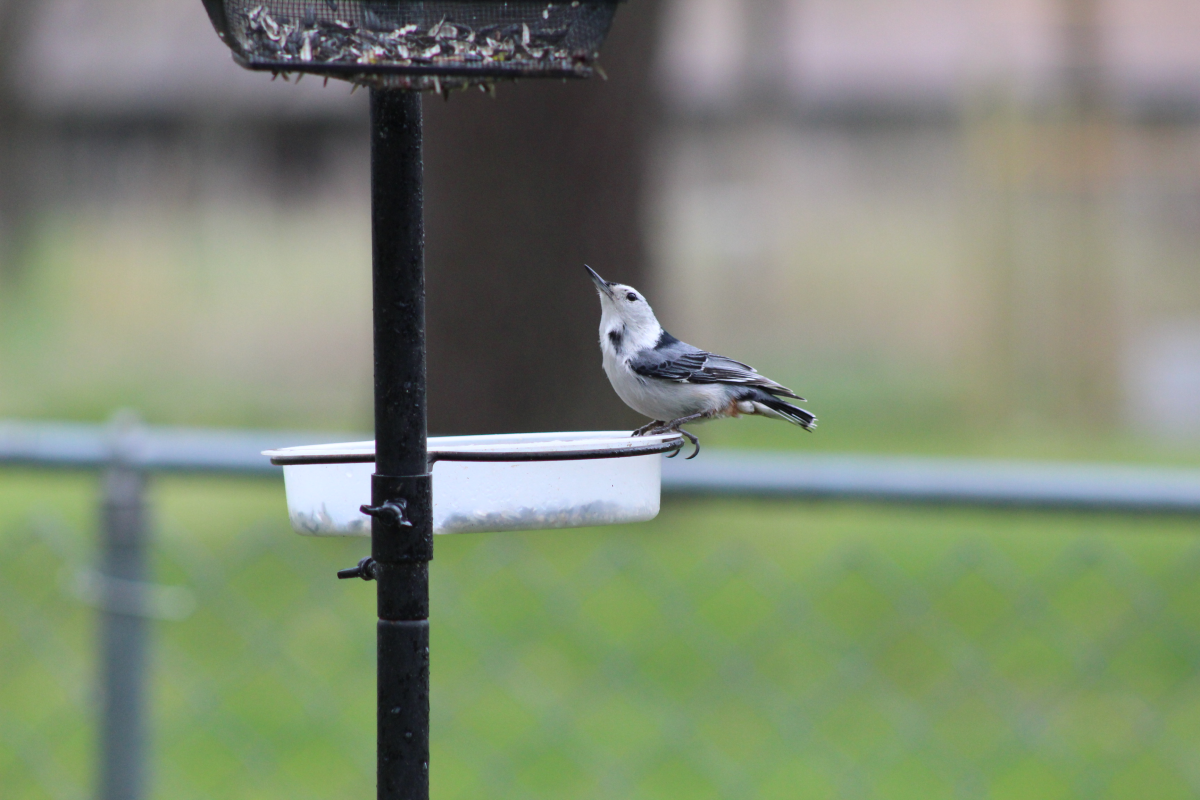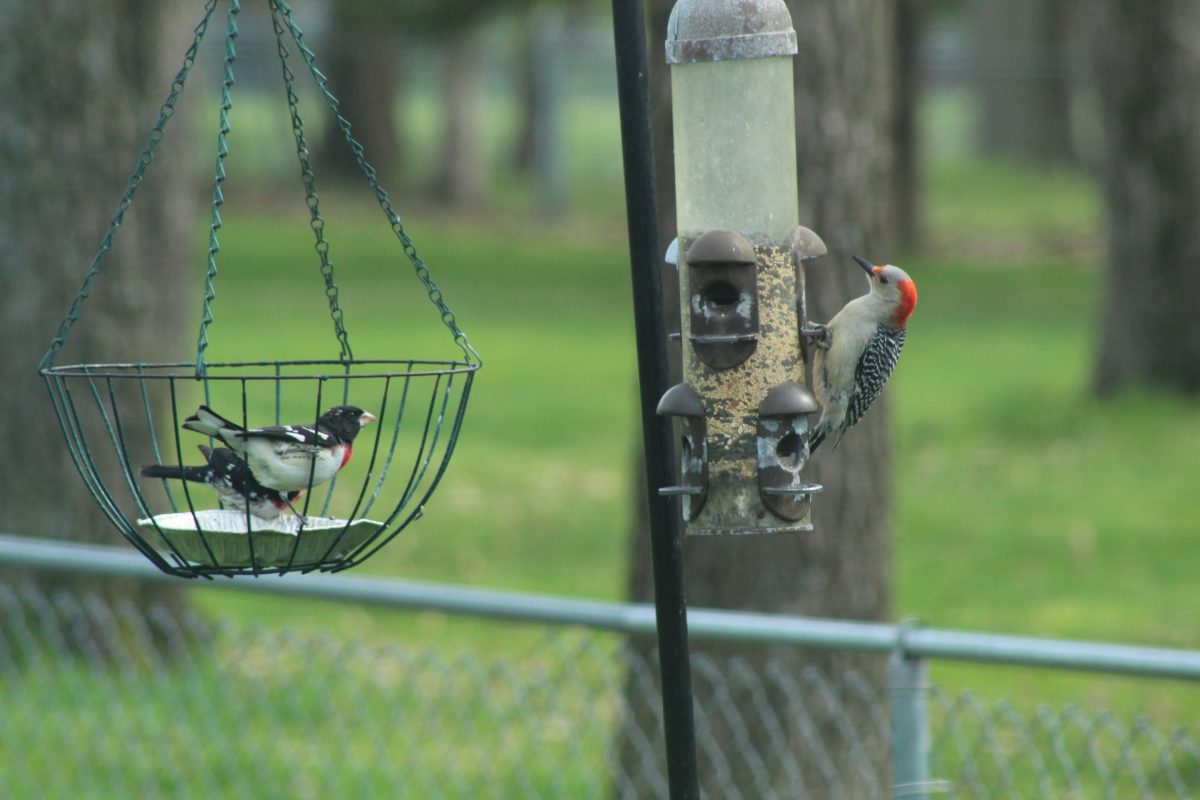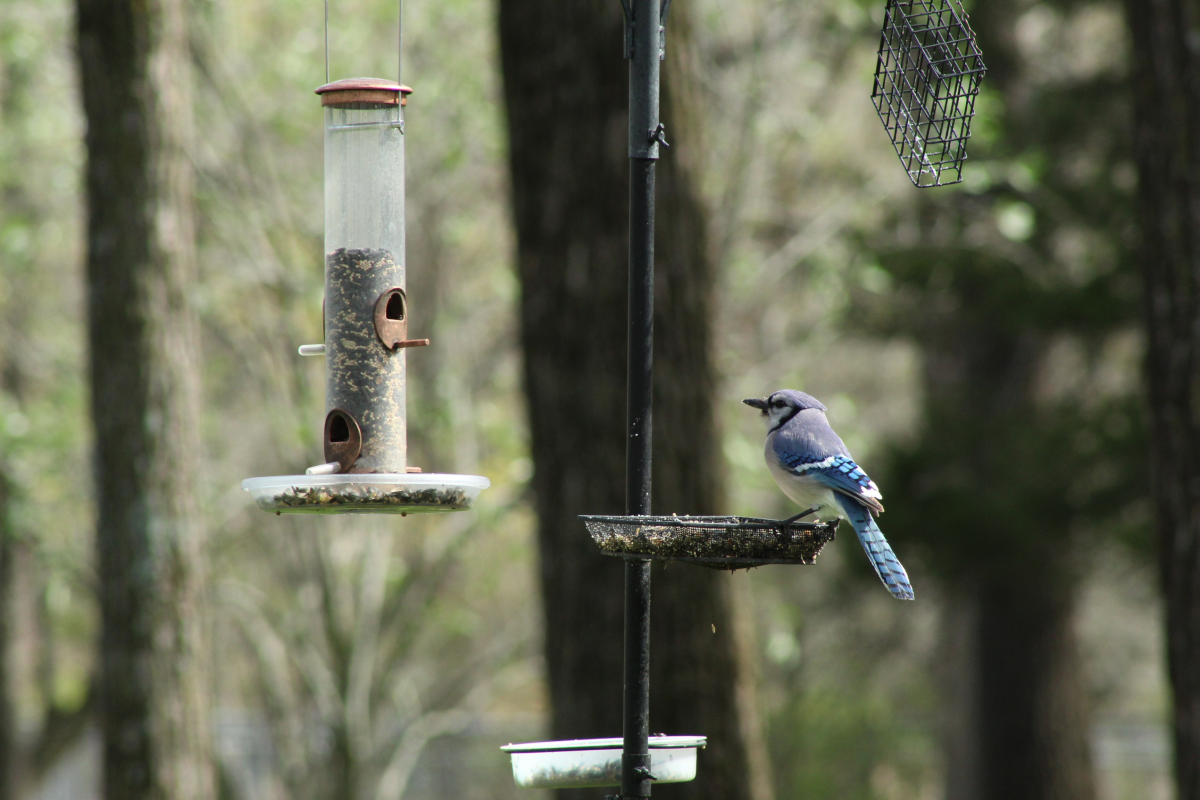The phone has been ringing almost nonstop at the Wild Birds Unlimited store on south Campbell Avenue.
People are hearing about the outbreak of avian flu across much of the country and wonder if they should take their bird feeders down.
“We're getting inundated by calls,” said store owner Brooks Brown. “Some people don't even want to touch their bird feeders.”
But according to Brown, and other wildlife experts, it's still safe to keep those backyard bird feeders up to enjoy the migrating orioles, rose breasted grosbeaks and hummingbirds that are just now making their way through the Ozarks.
“There are zero reports of songbirds being affected by avian flu,” Brown said. “They're seeing it in gulls and waterfowl, and no humans have contracted it.”

Though songbirds aren't significantly affected by the disease, poultry flocks are, and outbreaks of avian flu are a serious concern for poultry farms. So far in 2022, poultry producers have lost millions of chickens and turkeys to the disease, including on at least two poultry farms in Missouri.
But unless you're feeding bald eagles, white pelicans, crows or hawks in your backyard, there's no reason to take down your songbird bird feeders, according to Jay McEntee, associate biology professor at Missouri State University with a specialty in ornithology — the study of birds.
“It's really waterfowl and raptors and some game birds people are keeping that are affected by avian flu,” McEntee said. “There are some reported instances in Missouri including reports from flocks of chickens and ducks that have been domesticated. But as of April 22, all of the avian flu detects in wild birds have been in waterfowl and raptors.”

McEntee said the closest cases of avian flu to Greene County have been reported in Barton County — a wild mallard duck — and Vernon County, where a white pelican, red tailed hawk, peregrine falcon and sharp-shinned hawk were confirmed to have the disease.
Elsewhere in the country, there have been several reports of bald eagles dying from avian flu.
“In raptors it can cause rapid death, like if a bald eagle scavenges on a snow goose that recently died from avian flu,” McEntee said. “But with songbirds, there's a low risk, generally.”
The Missouri Department of Conservation is tracking avian flu in the state, in partnership with the USDA's Animal, Plant Inspection Service. MDC spokesman Francis Skalicky said the state wildlife agency is seeing “very low risk for songbirds” from avian flu.
“We are also following the U.S. Fish and Wildlife Service guidance, which says there's no reason to take down your bird feeders unless you also keep domestic poultry,” Skalicky said. “But very low risk doesn't mean no risk. We are tracking it, yes.”

Bird fans might want to regularly wash their bird feeders to help prevent avian flu or other transmittable diseases among songbirds, according to Brown, from Wild Birds Unlimited. He noted a bacterial outbreak last year that caused eye infections among many songbirds across the country, but especially in the northeast.
“It's a good idea to clean your feeders once in a while, at least twice a year,” Brown said. “You want to empty it out and get out as much junk as you can. Then soak it in a tub with warm or hot soapy water. A bottle brush and Dawn dish cleaner work great.
“Then rinse well and soak your feeder in a bleach-and-water solution of 10 parts water to one part bleach. Rinse it well again and let it air dry.”
With so many bird species migrating through Missouri right now, Brooks acknowledged few bird fans will want to take down their feeders to wash them and miss all the action. He suggested having a backup bird feeder that's already clean to swap out with ones that are being heavily used.


